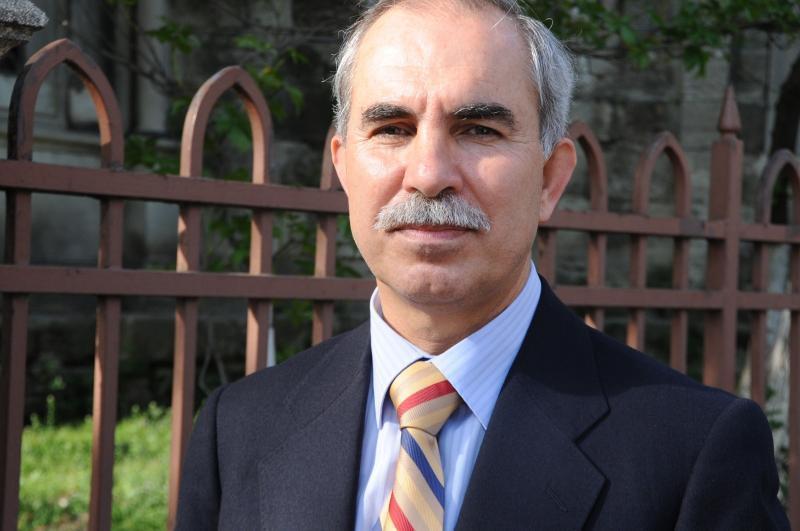BİTCOİN HARAM MI ?

ÇEŞİTLİ KAYNAKLARDAN SİZLER İÇİN DERLEDİK. YORUMSUZDUR..
İSLÂM HUKUKUNA GÖRE KRİPTO PARA BİRİMİNİN PARA OLMA KEYFİYETİ: BİTCOİN ÖRNEĞİ
Kripto Para Birimi ve ilk örneği olan Bitcoin, teknolojinin finans ile birleşmesi ile geleneksel ödeme sistemlerine alternatif olarak ortaya çıkan, kişiler arası merkezi olmayan ve altyapısı Blockchain sistemine dayanan elektronik para sistemidir. Bitcoin kullanıcılarına işlemlerinde hızlı transfer ve düşük maliyet avantajları sunmaktadır. Bununla birlikte merkezi olmayan yapısı, yasalara ve düzenlemelere tabi olmaması, kullanıcıların anonim olarak hesaplarını açabilmeleri ve işlem yapabilmeleri, değerindeki aşırı oynaklık, illegal işlerin finansmanında kullanılması ve siber saldırılara açık olması gibi riskleri içinde barındırmaktadır. Bitcoin, geleneksel para sisteminden farklı olarak merkezsiz olduğu ve farklı avantaj ve riskler barındırdığı için iktisatçıların ve İslâm hukukçularının tartışmalarının odak noktası haline gelmiştir. Bu minvalde iktisatçıların Bitcoin hakkındaki görüşleri vi dikkate alınarak İslâm hukukçularının konu ile ilgili yaklaşımları irdelenmiş ve Bitcoin’in İslâm hukukuna göre para olma keyfiyeti farklı açılardan değerlendirilmiştir. Müslümanların on dört asırlık ilmi birikimi, yeni ortaya çıkan para çeşitleri konusundaki modern tartışmalara önemli katkı sunmaktadır. İslâm hukukçularının Bitcoin hakkında olumsuz ve olumlu yaklaşımın yanında Bitcoin hakkında temkinli davranılmasının daha uygun olduğu yaklaşımı da mevcuttur.
Olumsuz yaklaşıma sahip olanlar, Bitcoin’in para olmadığı gibi mal olma şartlarını da yerine getirmediğini savunmaktadır. Olumlu yaklaşıma sahip olanların bazılarına göre Bitcoin dijital bir değerdir, diğerlerine göre ise paradır. Bitcoin’in bir dijital değer ifade ettiği, fakat şimdilik paranın fonksiyonlarını icra etmediği bilgisi öne çıkmaktadır. Bununla birlikte Bitcoin sisteminin barındırdığı risklerin bir sonucu olarak kullanıcıların servetinin haksız kazanç veya kayıp ile sonuçlanabileceği için sistemin sunacağı artılar hakkında araştırma yapılması uygun görülmüş, fakat işlem yapma konusunda temkinli davranılmasının en uygun tavır olduğu sonucuna varılmıştır
Diyanet: Kripto paraların kullanımı caiz değildir
Konuyla ilgili fetva yayınlayan Diyanet İşleri Başkanlığı Din İşleri Yüksek Kurulu, para olarak bilinen değişim aracının kendi özünde yani üretim şeklinde, sürüm aşamalarında ve muhataplık niteliğinde büyük belirsizlik içerip içermemesi, bir aldatma aracı olarak kullanılıp kullanılmaması ve belli bir kesimin haksız ve sebepsiz zenginleşmesine vesile olup olmadığına dikkat çekti.
"Kripto paranın kumar ve aldatma yönü var"
İlahiyatçı yazar İhsan Şenocak da Diyanet gibi mevcut haliyle kripto paraların kullanımının caiz olmadığı görüşünde.
 İhsan Şenocak / Fotoğraf: Twitter
İhsan Şenocak / Fotoğraf: Twitter
Dünyada dolaşımda olan ve kullanılan her paranın arkasında bir devletin olduğunu ancak kripto paranın arkasında kimsenin olmadığını belirten Şenocak, "Kripto paraya yatırım yapan insanlar yarın öbür gün birikimlerini kaybettiklerinde müracaat edecekleri bir merci yok. Bunun sahibi kimdir? Bunu piyasaya sürenler bir süre sonra ‘kaldırdık' dediklerinde yatırım yapanlar hak talep edemez" değerlendirmesinde bulundu.
Kripto paraların büyük küresel güçler tarafından sömürü düzenin kullanılacağını savunan Şenocak, "Şimdiden buna kapı aralanıyor. Yatırılan 1 milyon 5 milyon olabileceği gibi 50 bin liraya da düşebilir. İnsanlar servetlerini kaybedebilirler. Geçenlerde bununla ilgili bir intihar olayı da yaşandı" dedi.
Kullanımda kumar ve aldatma hilesine de değinen ilahiyatçı yazar Şenocak, kripto paraların devletler için de tehlike arz ettiğini belirterek sözlerini şöyle sürdürdü:
"Mevcut haliyle caiz değildir, çünkü ulus devletlerin yanı sıra ülke paralarını da tehdit edecek boyuttadır. Bu dünyayı soymanın farklı bir şeklidir. Kripto parada belirsizlik, kumar yönü, sahibinin olmaması ve mağdur olanların müracaat edecek yer bulamaması gibi hususiyetlerden dolayı mevcut haliyle kullanmak kesinlikle caiz değildir."
"Hangi ayete göre bunun haram olduğunu söylüyorsunuz"
Prof. Dr. Canan Taslaman ise kripto paraların caiz olmadığı görüşüne karşı çıkanlardan biri.
Kur'an-ı Kerim'in detaylar vererek her şeyi açıkladığını aktaran Taslaman, "Bu soruya cevap verirken her zaman uyguladığımız metodu uygulamamız gerekir. Şimdi buradan anlamamız gereken şey şu; eğer Kur'an'da bir şeyin haram olduğunu çıkartamıyorsanız o otomatikman helaldir. Caizdir diyebilmeniz için bu yeterlidir" değerlendirmesinde bulundu.
 Canan Taslaman / Fotoğraf: Twitter
Canan Taslaman / Fotoğraf: Twitter
Kur'an'da batıl yollarla para kazanmak olarak adlandırılan haramlar içerisinde kripto paraların olmadığını kaydeden Taslaman, sözlerine şöyle devam etti:
"Kripto paralar hırsızlık ile elde edilen, tartı ve ölçüde hile yaparak veya rüşvet vererek kazanılan paralar mıdır? Değildir. Tövbe süresinde din adamlarının insanların paralarını haksızlıkla elde ettikleri ve din sömürüsü yaptıkları konusu geçiyor ve bu davranış kınanıyor. Bu paralar böyle bir kazanç mıdır? Değil. Bunlar kumar parası mı? O da değil. Faizle de bir alakası yok. Peki nasıl haram oluyor."
Sosyal medya platformlarında kimi insanların "İslam bu şekilde alışverişe müsaade etmez, böyle işlemlere müsaade etmez" dediğini hatırlatan Taslaman, "Bunu diyenlere soruyorum, Kur'an-ı Kerim'deki hangi ayete göre bunu haram olduğunu söylüyorsunuz? Bilinmesi gerekir ki Kur'an, haram olmayan şeylerin haramlaştırmasını kınıyor. Siz neye dayanarak bunun haram olduğunu söyleyebiliyorsunuz?" sorunu yönetti.
"İslami açıdan haram demek mümkün olmasa da tasvip edilmiyor"
İlahiyatçı Prof. Dr. Mehmet Hayri Kırbaşoğlu da kripto para gibi spekülatif yatırımlardan olabildiğince uzak durulması gerektiğini söyledi.
 Mehmet Hayri Kırbaşoğlu / Fotoğraf: Twitter
Mehmet Hayri Kırbaşoğlu / Fotoğraf: Twitter
Kripto paralar, borsa ve kağıt oyunları gibi emek harcanmayan spekülatif ve yatırıma dönüşmeyen kazançlara uzak olmanın daha İslami olduğunu aktaran Kırbaşoğlu, "Birikimin yatırıma, istihdama ve üretime yönelmesi daha İslami'dir. En doğru ve ideal olanı budur" dedi.
Vatandaşların birikimini yatırım bankalarına yatırmasının ülkeye daha faydalı olacağını hatırlatan Kırbaşoğlu, sözlerini şöyle tamamladı:
"Ancak yatırım bankacılığı Türkiye'de riskli olduğu için kimse bunu göze almıyor. Genelde kripto para gibi spekülatif kazançlara yöneliyor. Buna İslami açıdan haram demek mümkün olmasa bile İslam'ın tasvip, teşvik ve onayladığı bir yatırım şekli değildir." Crypto staking is conceivably the most popular way to generate passive income from just owning cryptocurrencies, as many long-term cryptocurrency owners see it as a way to leverage their holdings to generate rewards rather than having them remain dormant in their wallets. Muslims who could be interested in taking advantage of this passive income-generating plan might have some reservations since they are unsure of how it complies with Islamic law. In this article, we provide a thorough description of cryptocurrency staking and how it adheres to Islamic values.
Crypto staking is conceivably the most popular way to generate passive income from just owning cryptocurrencies, as many long-term cryptocurrency owners see it as a way to leverage their holdings to generate rewards rather than having them remain dormant in their wallets. Muslims who could be interested in taking advantage of this passive income-generating plan might have some reservations since they are unsure of how it complies with Islamic law. In this article, we provide a thorough description of cryptocurrency staking and how it adheres to Islamic values.
WHAT IS CRYPTO STAKING?
Staking cryptocurrencies entails using crypto assets to authenticate transactions and maintain a blockchain network. It works with cryptocurrencies that handle transactions using the proof-of-stake methodology.
Proof-of-stake is a more energy-efficient choice than the previous proof-of-work paradigm because mining devices, which use processing power to solve mathematical problems in proof-of-work systems, are substituted with coins staked by network users. As a result, this procedure is comparable to mining in a proof-of-work system.
Blockchains based on proof-of-stake may include only genuine data and transactions thanks to staking. To be eligible to validate new transactions, participants agree to stake a specific amount of their crypto as an insurance policy. If they improperly authenticate incorrect or misleading data, they run the danger of losing all or part of their ownership. If they can verify authentic, valid transactions and data, they are compensated with extra tokens.
WHAT IS THE SIGNIFICANCE OF CRYPTO STAKING?
Thanks to staking, cryptocurrency owners now have a way to use their digital assets to earn money passively without having to sell them.
An investment in a high-yield savings account is comparable to staking. Like in the real world, the bank uses the money that customers deposit in savings accounts and frequently loans it to other customers who are expected to pay interest on the loan. In return for retaining that money in the bank, users earn a portion of the interest from lending.
Once you’ve decided to stake your cryptocurrencies, you’ll get the guaranteed return when it’s due. You will also receive your return from the protocol in the staked cryptocurrency, which you may then retain as an investment offer for staking or exchange for cash and other cryptocurrencies.
However, during market crashes, price changes are common, making cryptocurrencies one of the most unpredictable investment classes. In the event that a user was staking their cryptocurrencies in a lock-in arrangement, they wouldn’t be able to sell during a downturn. Even if the value of their staked token falls, they might still lose money, regardless of the staking platform they use.
Hence, staking is an excellent choice for investors who don’t care about short-term price volatility but are concerned about earning returns on their long-term investments.
Now that we are clear on what crypto staking is, we need to clear the skepticism relating to its compliance with Islamic injunctions.
CRYPTO STAKING AND ISLAMIC TENETS
Some Islamic scholars have differing opinions on whether the staking of cryptocurrencies is morally acceptable due to its speculative composition – possessing elements of uncertainty (gharar) and gambling (maysir). Hence, when carrying out commercial transactions, it is important to adhere to the sarf (currency exchange) rules to prevent being entangled with riba (interest).
Riba is present in a financial loan where the lender anticipates profiting from the loan. Islamic laws only permit charitable loans while other types of borrowing are forbidden. Therefore, a loan of money must have been made – either directly, as in the instance of riba al-nasia, or subtly, as in the case of riba al-fadl – for the suspicion of riba to be justified.
Despite the lack of agreement over the similarities between cryptos and fiat money, it is best to be cautious and take a conservative stance by adhering to Shariah guidelines for financial transactions. Proof of Stake and riba are quite comparable in that both require generating money from money without actually accomplishing much of anything other than possessing money. Regardless, an individual who partakes in crypto staking is not borrowing his money.
As previously mentioned, staking is only a way to enable proof of stake blockchains to generate additional blocks. In Proof of Stake, funds are staked on an address, making it impossible for the owner to remove them. The owner also subscribes to validating transactions in order to aid with network security. In reality, the stake serves as a deposit because if the coin owner behaves dishonestly, they will forfeit their deposit. Hence Crypto staking is not riba. However, Riba would not be present in the case when no money leaves the depositor’s account, no one else uses the money, and no one makes it available to anybody else.
A lot of people may argue that crypto staking is like gambling because of the risks involved, as it can be likened to risking money in a valueless activity. Again, as previously mentioned; the more coins are staked the more secure the network becomes. Therefore, it is not a valueless activity.
Hence, staking cryptocurrencies is not haram. Nevertheless, Muslims are advised to do their due diligence when it comes to staking crypto. It is important to verify that the crypto project itself complies with sharia law before staking its coins. Consequently, regardless of how a cryptocurrency project employs staking, if it connects itself directly to gambling or any other act that is unlawful according to the teachings of Islam, it would then be haram to take part in such.
FINAL THOUGHTS
It is assumed throughout the Shariah discussion of staking that the cryptocurrency itself complies with Islamic laws. Hence, a crypto-asset has to be checked before participating in any staking activity and reaping the rewards of staking.
Since there are many different kinds of crypto, Muslims must check that they comply with Shariah before investing. As a rule of thumb, the following checks should be conducted:
- Verifying the legitimacy of the crypto-asset to make sure it is a real initiative and not a fraud.
- Project evaluation to confirm compliance with Shariah. If it is an equity-based token, financial screening to ensure that it complies with the financial requirements for Shariah compliance.
- Token screening, to determine whether the token complies with Shariah.
Hence, to be on the safer side, it is required that Muslims should check the token and the project to make sure it complies with Shariah or seek counsel from Islamic clerics before any staking action can be regarded as Shariah Compliant.
GREAT VE ÜZERİ MAKALEDİR
DESTEKLERİNİZE GERİ DÖNÜŞ SAĞLANACAKTIR.
TEŞEKKÜRLER..



































